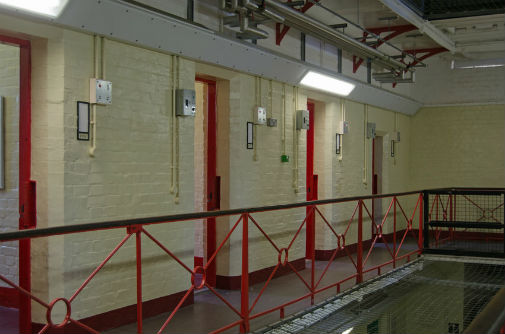Report calls for radical rethink on support given to released prisoners recovering from addiction
Posted on 16 July 2019

Previous research has shown a ‘cliff-edge’ of support for released prisoners recovering from substance abuse
Previous research has shown a ‘cliff-edge’ of support for released prisoners recovering from substance abuse.
Nearly 20% of prisoners serving short sentences are released homeless, 10% are released to unsettled accommodation, and 60% reoffend. Despite the role drugs play in reoffending, support pathways for ex-prisoners who want to stay drug- and alcohol-free are almost non-existent.
Clarion call
Now a panel of experts chaired by Lord Patel of Bradford, which includes leading academics, the Chief Executives of national charities and a former director general of HM Prison Service, has outlined four possible blueprints aimed at supporting prisoners recovering from addiction once they leave jail. The blueprints focus on men and women; and on prisoners serving short and long-term sentences.
The Ex-Prisoners Recovering from Addiction (EPRA) Report says it has identified evidence-based, cost effective ways to support prisoners who want to transform their lives post release.
The report recommends a “planned pathway” away from drugs and alcohol addiction, with residential rehabilitation and supported housing at its core.
EPRA Chair, Lord Patel, said: “This report sounds a clarion call to all those who think that prisoners who have served their time inside deserve an opportunity to make radical, positive changes in their lives, and have a right to be properly supported in so doing. “
“It is simply not acceptable that prisoners who genuinely want to make radical changes in their lives face a cliff-edge of support on release, leaving prison without housing, employment and often, without much hope.”
“I know the current Government also sees this as unacceptable and I hope that we can work together and with the excellent voluntary sector organisations in the field, in providing evidence-based, effective support for prisoners who want to make transformational changes to their substance use and in their wider lives.”
Key recommendations include:
- Establishing pathways into specialist drug-free supported housing, which is much cheaper than imprisonment
- Investment to fund residential treatment in the community
- Dedicated, segregated units within prisons, free from novel psychoactive substances and other drugs
- More use of early release, reducing the costs of imprisonment and overcrowding
- Prisoners move from abstinence-focused prison treatment into abstinence-focused, substance misuse specialist community accommodation
- Throughout both prison and community provision, a strong emphasis is placed on progressing to secure independent tenancies, maintaining or re-establishing family ties and providing education, training and employment opportunities
Outstanding potential
Professor Charlie Lloyd, a reader in addiction research at the University of York and one of the report authors, said: “Too many prisoners are simply released onto the street after they have served their prison sentences and end up living on the street or staying in dangerous and very unpleasant accommodation. It is no wonder they go back onto drugs and re-enter the cycle of substance dependence and reoffending.
“We can’t go on doing this. We have to put the money in to stop them from reoffending. After serving their time inside, they deserve a fresh chance and at the moment we simply aren’t giving them any chance.
“We believe that these blueprints offer outstanding potential for spending better to save, by perceiving abstinence-focused interventions as a continuous process and not one that begins and ends in prisons.”
Further information:
Explore more news

New butterfly species created 200,000 years ago by two species interbreeding
Thursday 18 April 2024

Children in the North at greater risk of entering care
Wednesday 17 April 2024

Boreal forest and tundra regions worst hit over next 500 years of climate change, study shows
Monday 8 April 2024

Researchers developing ultra-sensitive blood test with potential to revolutionise diagnosis of Alzheimer’s
Thursday 4 April 2024

Attitudes to being an adult are shifting as traditional milestones become out of reach, new study finds
Wednesday 27 March 2024
Media enquiries
About this research
The report: Blueprints for the treatment and throughcare of prisoners with histories of drug dependence was launched at the House of Lords on 17 July 2019. Explore our research.
